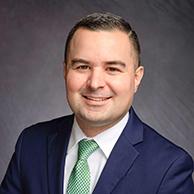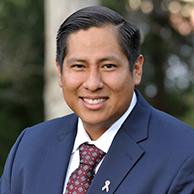 From the Advocate
From the Advocate
June 2022
What is an Entrepreneur and Why Do We Need Them?
For obvious reasons, I frequently mention “small business owners” and “entrepreneurs,” in the same sentence. For not-so-obvious reasons, sometimes I’m asked to explain the difference.
I sometimes chuckle at the question.
But I also think I know why people ask. I think our culture wants to reserve the word “entrepreneur” for those whose businesses become big over time. You have to earn the label by becoming, in a word, rich. Small businesses are, by definition, small and that means, to some, that maybe the owner hasn’t yet earned those entrepreneurial stripes. Google the phrase “American entrepreneur” and you’ll see what I mean.
The distinction is important because of the status our culture grants to those “American entrepreneurs.” We extoll their achievements and thrill at their exploits. (Elon Musk comes to mind.) Sometimes we are shocked by their excesses. (Elizabeth Holmes and Adam Newman come to mind). But we generally think that big ideas merit big risks, including from the banks and equity capital that line up to finance those big ideas.
For the record, my answer to the question is that the word “entrepreneur” is less so defined by how much you make in the long run, but more so by how much you risk at the front end. I quote Investopedia: “An entrepreneur is an individual who takes the risk to start their own business based on an idea they have or a product they have created while assuming most of the risks and reaping most of the rewards of the business.”
To me, those with modest dreams of success can earn the label “entrepreneur” just as well as the next future tycoon. Personally, I’m thrilled by the exploits of the mom-and-pop shops risking it all every day by showing up and doing all the work themselves.
To me, small ideas merit big risks… and equal access to those capital sources.
The SBA defines a small business with 500 or fewer employees; thereby counting 32,540,953 small businesses in the U.S. Only about 2% of these hire more than 19 employees. About 81% hire no employees. (SBA 2021 Small Business Profile) These businesses account for about 65% of new jobs in the United States.
So, if we reserve the word entrepreneur for those that grow into big businesses, we’re leaving a lot of business talent out of the pool.
Therefore, I think the term should cover every business owner whose financial projections are ambitious enough to someday support themselves and their family. I think lists of “America’s most successful entrepreneurs” should include all business owners who’ve built something successful enough to let the owner pay for health insurance for their family, buy a house, send their kids to college, and retire.
If we redefined the word this way, maybe we could see our way to risking more on small.
And yet at least 83% of new hiring businesses are not accessing external private institutional capital at the new business start stage; 64.4% of capital for new business starts comes from the personal and family savings of the owners; according to the 2019 report “Access to Capital for Entrepreneurs: Removing Barriers” from the Ewing Marion Kaufman Foundation.
Let’s look at this a different way: how many small businesses are getting all the capital they need? According to the 2021 Small Business Credit Survey, only 37% of loan applicants received all the financing they sought in 2020 (down from 51% in the 2019 survey).
Predictably, results vary by race.

Source: 2021 Small Business Credit Survey
This is important not just as another leading indicator of institutional racism, although that would be enough to merit a column or, indeed, an entire book. But I point it out because these kinds of statistics undermine the correlation between entrepreneurship and economic mobility, the kind of economic mobility that would let low-income and working-class families do things like pay for health insurance and buy houses and pay for college for their kids.
Subsequently, if you define entrepreneurs by the scale of the risks they take and you know that those starting with the least risk the most, then minority business-owners are America’s unsurpassed entrepreneurs. Don’t they deserve at least equal access to capital markets?
This is also why our office is excited to stand up the 2022 Entrepreneurship & Economic Mobility Task Force with the aim to explore, support and extend this nexus between starting a business and improving the economic security of individual families. Its mission is to propel inclusive entrepreneurship and to ensure that all California small businesses have access to the resources they need to grow and scale.
My team is spending June forming a bench of California thought leaders on this topic under the leadership of Lenny Mendonca, owner of the Half Moon Bay Brewing Company, as Chair and Co-Chairs Maria S. Salinas, President and CEO of the Los Angeles Area Chamber of Commerce and Gurinder S. Ahluwalia, Member of the Board of Hightower Advisors and InspereX.
Once formed, our Task Force of 24 members will be organized into three workgroups:
- Democratizing Access to Capital
- Diversifying the Innovation Economy
- Driving Economic Mobility through Entrepreneurship
I will be reporting here over time about their activities and discoveries.
The hope is that, by bringing dedicated business and community leaders together to delve deep into these topics, my Office can drive to a better understanding of how to support all our entrepreneurs, those with the dreams big enough to keep California one of the biggest economies in the world and those with dreams just big enough to make one more California family secure in the present and hopeful about the future.



















































